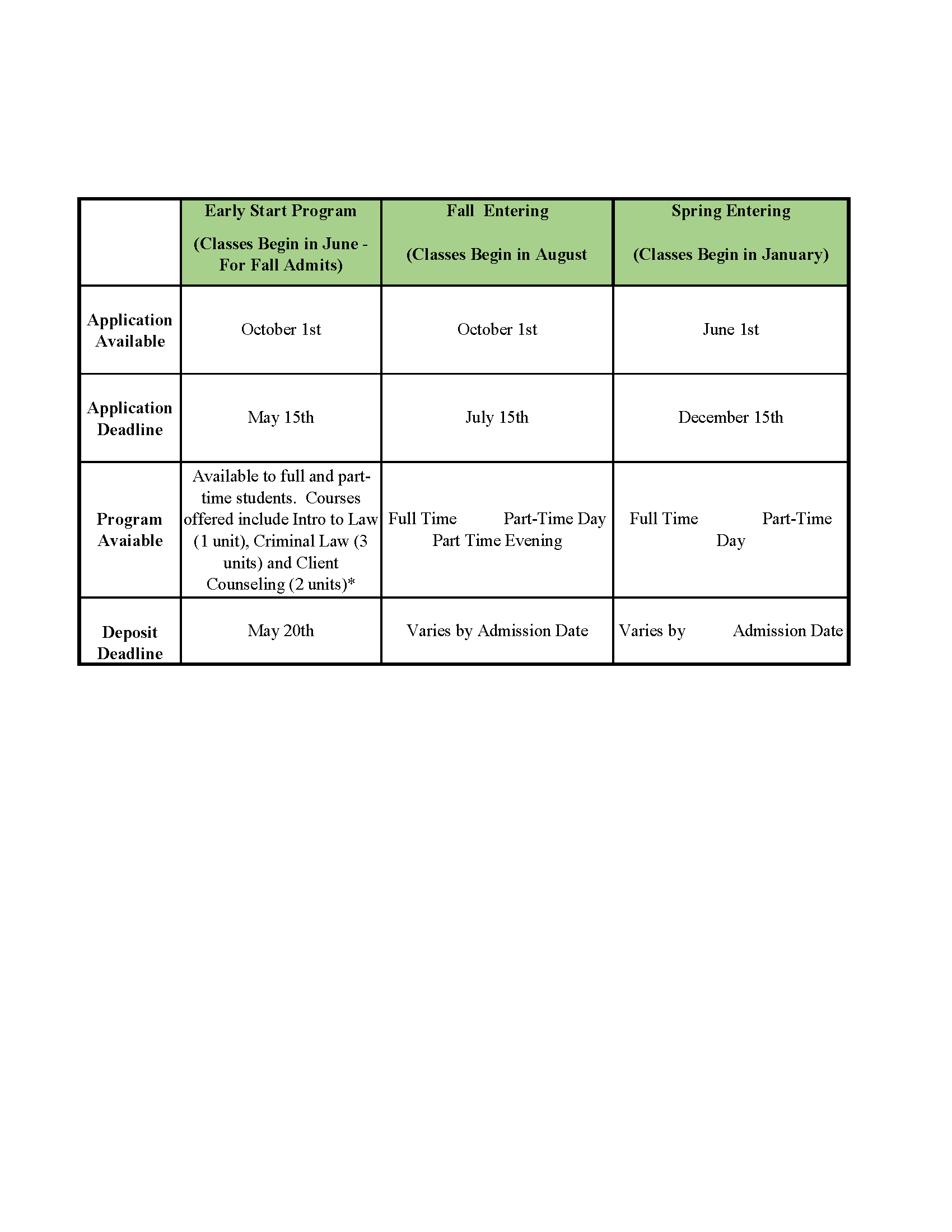International Students
If you received your college degree outside the United States, you must have your transcript(s) evaluated by a professional evaluation service to make sure you have the equivalent of a U.S. undergraduate degree. The Law School Admissions Council (LSAC) offers a Credential Assembly Service to evaluate your transcript. Transcript evaluations for transfer students and non-JD students may also be evaluated by World Education Services (WES).
Applicants from non-English speaking countries must also provide their TOEFL or IELTS exam results. Our school code is 4973.
Please visit the LSAC website for more information: www.lsac.org
If you received a law degree outside the United States and are interested in seeking admission to a U.S. bar, you may seek admission to the JD Program as a transfer student. You may also be interested in our LL.M. (Master of Laws) degree in American Legal Studies (ALS). The LL.M. in ALS is a one-year program for candidates who seek a U.S. law degree, potentially leading to eligibility to sit for the bar exam in a small number of US jurisdictions, including New York and California. The LL.M. in ALS is a one-year program for candidates who seek a U.S. law degree, potentially leading to eligibility to sit for the bar exam in California.
Student Affairs Can Help
Student Affairs Office:
Location: Second Floor
Telephone: 619.961.4202
Hours: 9:00 a.m. to 6:00 p.m., Monday - Thursday
8:00 a.m. to 5:00 p.m., Friday
Contact: Karin Sherr, President / General Counsel ksherr@tjsl.edu
If you have not yet applied to Thomas Jefferson School of Law, please click here.
Important Information:
This page is designed to help answer your questions regarding the steps to take for pursuing your legal studies at our campus if you are neither a U.S. citizen nor a resident alien. We understand that the transition to law school and living in the United States can be challenging. Our Student Services team is ready to help manage this process and we look forward to working with you as you relocate to San Diego.
Transfer Students: International students currently enrolled in an educational program in the United States may transfer to a new learning institution. Students interested in transferring to Thomas Jefferson School of Law should complete the admissions application process through our Admissions Office. Upon notification of admission, you must alert the Student Affairs Office of your intent to transfer. While each school has its own process, the home school (the school you are seeking to transfer from) will need to release you and update you as a transfer on the SEVIS website. An official from your home school should contact our Student Affairs Office to inform us of the release and/or you can provide us with a document reflecting the completion of the transfer. Once the transfer information is complete, we will contact you about the issuance of an I-20 document.
Requesting an I-20 for F-1 Student Status: International students are required to obtain an I-20 document to study in the United States. Thomas Jefferson will only issue the I-20 after an individual has been admitted. Upon receipt of an "offer of admission letter" from our Admission Office, our Student Affairs staff works directly with each student to communicate the information needed to support the request for an I-20 document. The admission letter will disclose the financial obligations for studying at the law school. Students should be prepared to provide financial records that demonstrate the ability to finance their studies in the United States.
Please note: F-1 students must maintain full-time status throughout their law school career.
I-20 Document: The I-20 document supports the F-1 student status. This form is very important and should be treated similarlly to a passport. This document will be needed when making an appointment for a visa to enter the country, as well as when arriving into the United States. Upon receipt of the I-20, students should carefully review it to ensure accurate information (name, birth date, and all other information). If there is a discrepancy, please notify the Student Services Office immediately.
Please Note: F-1 students may enter the country 30 days prior to the start of classes, as indicated on your I-20 document.
Visa Appointments: Non-resident aliens and non-U.S. citizens are required to obtain a visa prior to entering the United States. However, Canadian citizens are not required to obtain a visa prior to entering the country. Students who are not Canadian citizens should contact the United States Consulate Office within their home country for more information. Visa appointment times can vary; therefore, it is recommended that students make an appointment as soon as possible. For information regarding the nearest Consulate Office, go to: https://travel.state.gov/content/travel/en/us-visas.html. This website will also provide you with information on what documents are needed for the appointment, as well as the wait time for an appointment at the Consulate Office in the student's home country. Prior to the meeting at the Consulate's Office, students will need to pay fee I-901, which can be paid online at http://www.fmjfee.com/. There may be additional fees accessed for the visa application as each country is different; therefore, please check the Consulate website stated above for further information.
In general, a visa application requires the following:
- A valid passport (six months remaining)
- An I-20
- Proof of funding (bank statements, letters of support, etc.)
- Photographs for the Visa
- Payment of Visa application fees
- Visa application forms (D-156, D-157, and D-158 as required)
- Payment of I-901
Once issued, the visa will be stamped into the student's passport. The visa has an expiration date that indicates the period of time the student can enter the United States.
Entering the United States: Students are required to go through United States immigration and customs inspection when entering the United States. All documents will be reviewed by a Customs and Border Protection (CBP) Officer. The I-20 document will be stamped and an I-94 form will be issued. The I-94 document will indicate the date of entry, your status in the United States, and the day you will leave the United States. It is extremely important that your I-20 and I-94 stamps reflect your F-1 status; therefore, please check the documents prior to leaving the United States Customs area. If your stamp reflects any other status (such as visitor) notify the CBP immediately so that the documents can be corrected.
Orientation and Checking in at Thomas Jefferson School of Law: Once you are settled in San Diego, make an appointment with President / General Counsel Karin Sherr to set up your school check-in. Check-in appointments will include welcoming you to the campus, completing your international student file, registering you in the SEVIS website, providing information on maintaining your F-1 status and orienting you to beautiful San Diego, CA. Students are also required to attend the law school's orientation, about which the Admissions Office will mail information to each student.
Curricular Practical Training (CPT): CPT is designed to provide students with additional educational opportunities through externships. Students interested in pursuing an externship for CPT should contact the Student Affairs Office.
Optional Practical Training (OPT): Optional Practical Training is designed to provide work experience to students in the legal community. This experience can be received in school or after degree completion. Students interested in OPT should contact the Student Affairs Office for further information.







